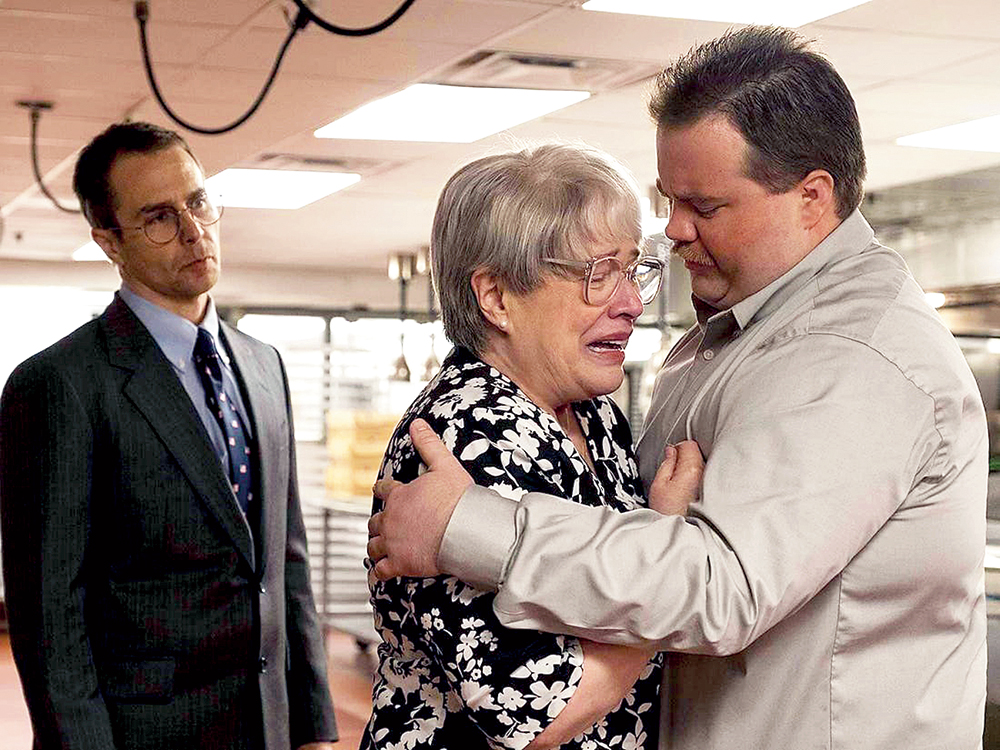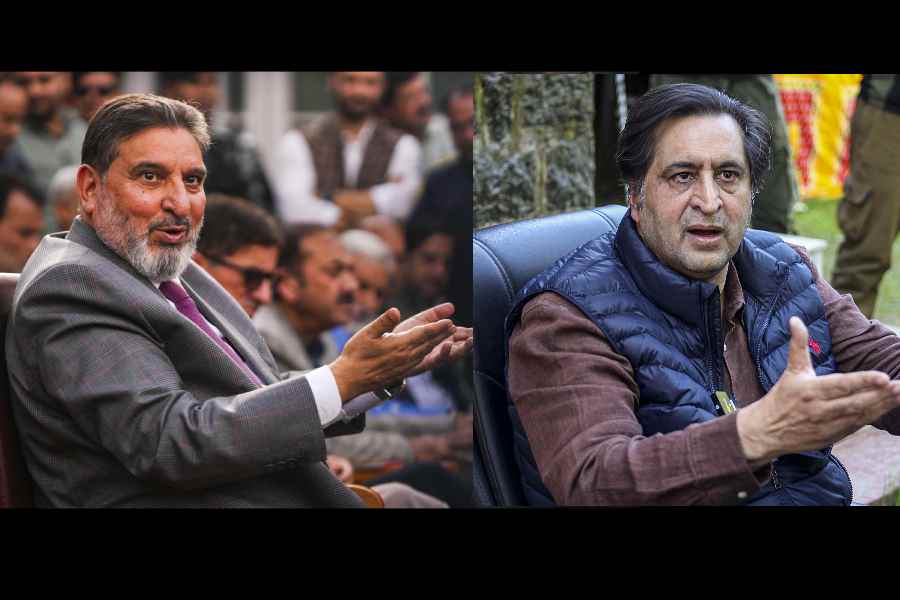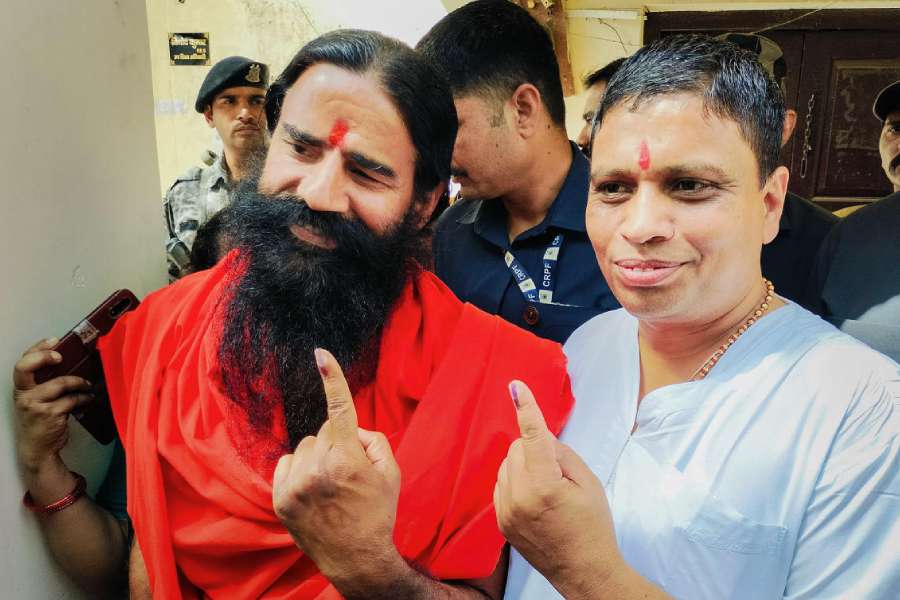OnOn July 27, 1996, a homemade bomb exploded at Centennial Olympic Park in Atlanta, the host city for that year’s Summer Olympics. Two people died and 100 were hurt in the attack. It was carried out by an anti-abortion militant named Eric Rudolph, though he was not arrested until 2003, after he had bombed two women’s health clinics and a gay bar and spent five years as a fugitive in the woods of Appalachia.
Rudolph’s name is mentioned near the end of Richard Jewell, Clint Eastwood’s new film about the aftermath of the Atlanta bombing. The movie isn’t about the bomber but rather about the security guard who found a backpack full of explosives and shrapnel under a bench and sounded the alarm. Nonetheless, the spectre of domestic right-wing terrorism haunts the movie, an unseen and unnamed evil tearing at the bright fabric of American optimism.
Eastwood, in nearly half a century as a major filmmaker and even longer as an axiom of popular culture, has chronicled the fraying of that cloth, and also plucked at a thread or two. Richard Jewell, with a screenplay by Billy Ray, is one of his more obviously political films, though not always in obvious ways. In spite of some efforts to interpret it as a veiled pro-Trump polemic, the film doesn’t track neatly with our current ideological agitations. The political fractures Eastwood exposes are more elemental than even the most ferocious partisanship. This is a morality tale — in a good way, mostly — about the vulnerability of the individual citizen in the face of state power and about the fate of a private person menaced by the machinery of publicity.
Though he acts bravely and responsibly at a moment of crisis, Jewell (Paul Walter Hauser) isn’t entirely a hero, and Richard Jewell doesn’t quite belong in the gallery with Sully and American Sniper, Eastwood’s other recent portraits of exceptional Americans in trying circumstances. As in 15:17 to Paris and The Mule, he’s more interested here in exploring what happens to an ordinary man under extreme pressure. He also wants to show how a regular guy’s idiosyncrasies can seem like either warning signs or virtues, depending on who’s looking.
We first meet Jewell about 10 years before the bombing, in a local office of the Small Business Administration, pushing a cart full of office supplies. That’s where he meets Watson Bryant (Sam Rockwell), an irascible lawyer who will become his champion later on. Jewell is polite, hard-working and prone to surprising, unsolicited acts of generosity. He keeps Bryant’s desk drawer stocked with Snickers bars. At Centennial Olympic Park in 1996, he hands out soft drinks to co-workers, police officers and other thirsty people.
There might be something a little peculiar about him. Eastwood, Ray and Hauser (who is nothing short of brilliant) cleverly invite the audience to judge Jewell the way his tormentors eventually will: on the basis of prejudices we might not even admit to ourselves. He’s overweight. He lives with his mother, Bobi (Kathy Bates). He has a habit of taking things too seriously and of trying a little too hard to fit in. He treats members of the Atlanta Police Department and the FBI like his professional peers, and seems blind to their condescension. “I’m law enforcement too” he says to the agents who are investigating him as a potential terrorist, with an earnestness that is both comical and pathetic.
Most movies, if they bothered with someone like Jewell at all, would make fun of him or relegate him to a sidekick role. Eastwood, instead, makes the radical decision to respect him as he is, and to show how easily both his everyday shortcomings and his honesty and decency are distorted and exploited by the predators who descend on him at what should be his moment of glory.
The main heavies are Tom Shaw, a stone-faced FBI man played by Jon Hamm, and Kathy Scruggs, a reporter for the Atlanta Journal-Constitution. It’s her reporting that sets off a feeding frenzy in the newspapers and on the airwaves, including a painful moment when Bobi sees her beloved Tom Brokaw saying terrible things about her son.
That is real footage. Scruggs, played by Olivia Wilde, was a real person (she died in 2001). Tom Shaw was not — the FBI agents have been renamed in the movie — and the implication that Scruggs had sex with him in exchange for information about the bombing case has no apparent basis in reality. The Atlanta Journal-Constitution has threatened legal action against Warner Bros. for the way its journalists, Scruggs in particular, are portrayed in the film, and the studio has pushed back. On strictly dramatic grounds, the character is, at best, a collection of lazy, sexist screenwriting cliches.
That isn’t so unusual in Hollywood, but what’s worse is that Eastwood and Ray subject Scruggs — depicted as a newsroom mean girl with nothing but scorn for her female colleagues — to a type of profiling analogous to what Jewel endured. Assuming that an ambitious woman journalist must be sleeping with her sources isn’t all that different from assuming that a fat man who lives with his mother must have planted a bomb.
In that respect, then, Richard Jewell undermines its own argument. But it happens to be a pretty strong argument, and one that takes Eastwood in some surprising directions. I would not have expected to see a heartfelt defense of Miranda rights in a movie directed by the former Dirty Harry, or a critique of FBI overreach from the maker of a sympathetic J. Edgar Hoover biopic. Eastwood has always had a stubborn libertarian streak, and a fascination with law enforcement that, like Jewell’s, is shadowed by ambivalence and outright disillusionment.
The shadows are what linger from this flawed, fascinating movie. Richard Jewell is a rebuke to institutional arrogance and a defense of individual dignity, sometimes clumsy in its finger-pointing but mostly shrewd and sensitive in its effort to understand its protagonist and what happened to him. The political implications of his ordeal are interesting to contemplate, but its essential nature is clear enough. He was bullied.










